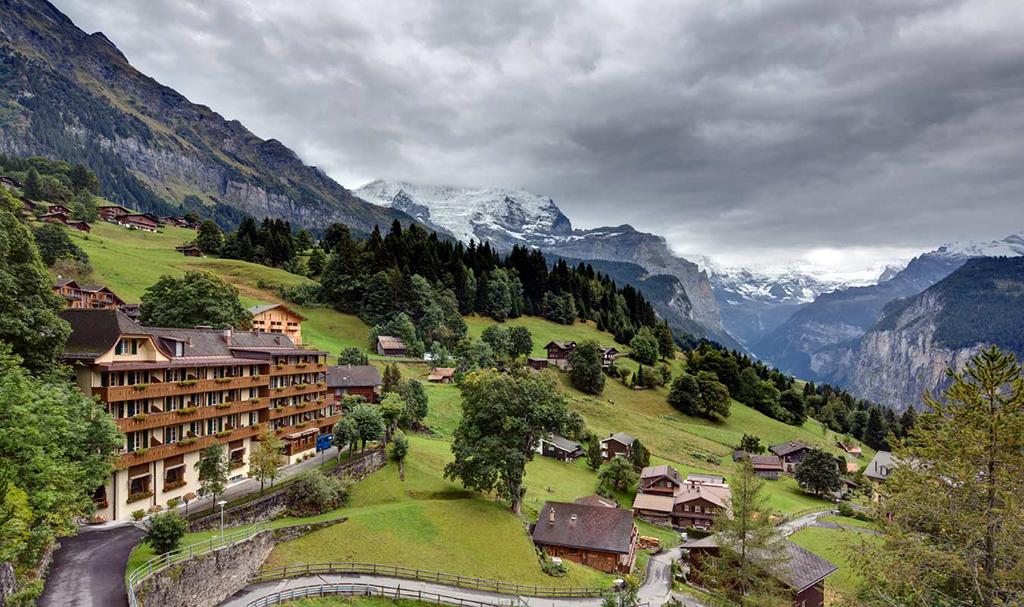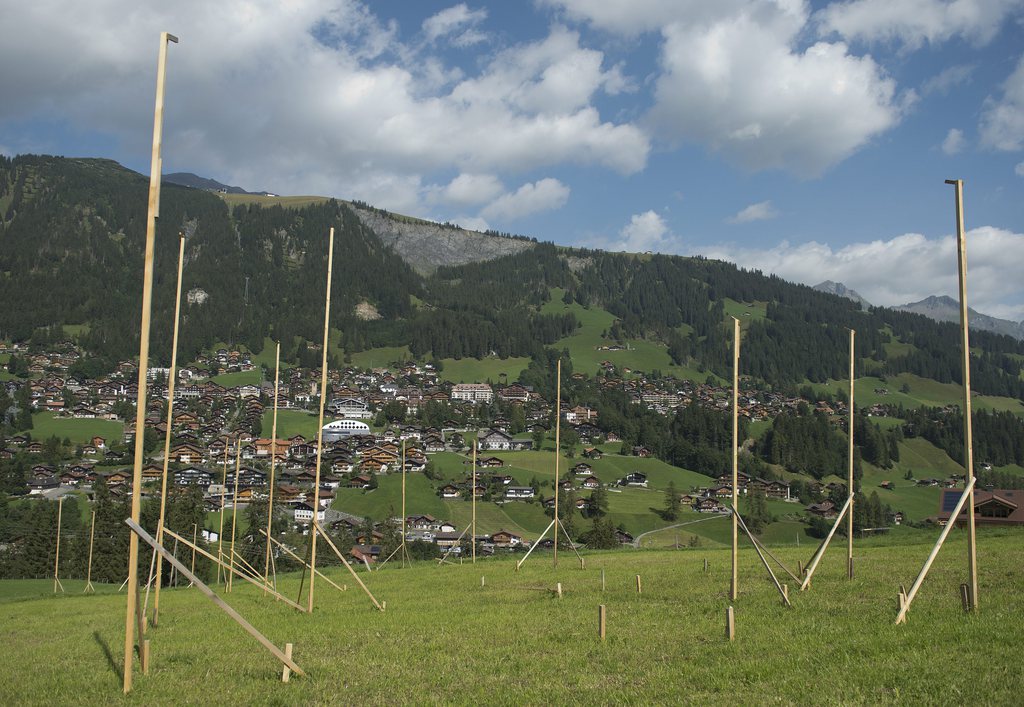A lesson for people’s rights grumblers
Political fatigue abroad and the recent deal worked out in Swiss parliament on the construction of holiday homes illustrate that direct democracy is still a blessing.
The public does foolish things when you let them have a say; this is a common complaint in a democracy. In the late 1990s, business leaders and professors viewed voters as an obstacle to progress.
Economist Walter Wittmann formulated this distrust against direct democracy in the book title, which describes direct democracy as an impediment to revitalisation.
Nationwide votes in support of a ban on minarets, unconditional life imprisonment for sexual offenders, and the automatic deportation of criminal foreigners fuel further scepticism with regards to the public.
This, in turn, puts pressure on the basic principles of the constitution such as the principle of proportionality, thereby dismantling the foundation of their own freedom in the long run.

Dutiful, involved and interested
But there is reason to see our system in a better light than how it is viewed by the sceptics.
Thanks to the votes, we discuss issues in Switzerland that are purposefully removed from the realm of public debate elsewhere in the world.
In Germany, for example, there remains “a multitude of dark matter that has not been dealt with”, according to the left-liberal newspaper Die Zeit.
In an established, consensus-based system, the large coalition steers the decision-making progress and maintains power peacefully.
In the context of “de-ideologisation, objectification and the removal of antagonism”, the “spectrum of tolerable positions” and “zones of the speakable” have increasingly become restricted.
“Germany’s democracy has transformed from an anger-processing organisation to one that is anger-suppressing,” as Die Zeit put it.
Disdain
The cost: growing displeasure with the system, overt aggression, and blatant disdain for politics and the media.
The PEGIDA [Patriotic Europeans against the Islamisation of the West] demonstrations and Germany’s AFD party [Eurosceptic Alternative für Deutschland] are visible expressions of this phenomenon.
Elsewhere it is found in extreme right-wing parties such as Front National [in France] and UKIP [in Britain], or electoral victories by leftwing populists such as [Greek Prime Minister] Tsipras.
In Switzerland, polls show that the population trusts the government to an astonishing degree. What the administration and parliament accomplish is well regarded by the vast majority.
Here we sense little of the disdain toward the state and politics that is common in many countries.
The Swiss system compels authorities and politicians to listen.
Even debates about uncomfortable issues can’t be stifled or else they will be threatened by initiatives or referendums.
Citizens are more dutiful, involved and content when they have the possibility to occasionally force the powerful to change direction or at least throw a spanner in the works.
There is no better tool against powerlessness, indifference and anger than people’s rights.
A political work of art
A Swiss-style democracy can be cumbersome and demanding.
In particular, when initiatives approved by the people are badly worded, rigidly impractical in the real world, or strain constitutional principles.
During the current spring session of parliament, however, the Swiss political machine showed once again how to deal with such problems.
Domestic policy also provides no reason to despair of direct democracy. After a tough battle, the People’s Party and the Radicals respected the wishes of the electorate to stop plastering the Alps with newly constructed holiday homes.
In return, environmentalist Vera Weber accepted various exceptions to the strict principle that nothing new should be built for newcomers in communities where holiday homes already account for 20% or more of residencies.
This is exactly how it should work: initiatives set the direction, but the initiators must offer exceptions during their implementation.
Otherwise it can be difficult to find a practical way to resolve the identified issue. Direct democracy can’t function without flexibility.
The People’s Party in particular can learn a great deal from Weber.
With the deportation initiative, the party influenced judicial practice, and the law implementing the initiative will compel more deportations. But to consequently make it impossible for judges to examine individual cases – thereupon the People’s Party can’t insist.
Moreover, the mass immigration initiative can only be reasonably implemented when it’s not rigidly interpreted.
Direct democracy is a work of art. One must nurture it. It would be a pity if those who gripe about popular rights one day win the argument.
This article first appeared in the newspaper Der Bund on March 7, 2015. The author’s opinion does not necessarily represent the views of swissinfo.ch.
Opinion series
swissinfo.ch publishes op-ed articles by contributors writing on a wide range of topics – Swiss issues or those that impact Switzerland. Over time, the selection of articles will present a diversity of opinions designed to enrich the debate on the issues discussed.
Translated from German by Catherine McLean

In compliance with the JTI standards
More: SWI swissinfo.ch certified by the Journalism Trust Initiative






You can find an overview of ongoing debates with our journalists here. Please join us!
If you want to start a conversation about a topic raised in this article or want to report factual errors, email us at english@swissinfo.ch.